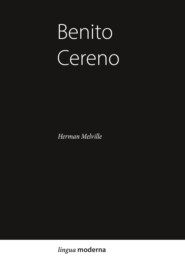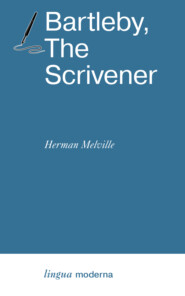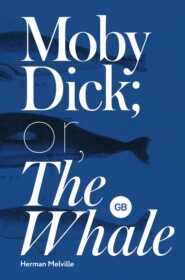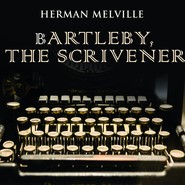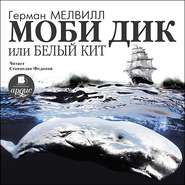По всем вопросам обращайтесь на: info@litportal.ru
(©) 2003-2025.
✖
Moby-Dick or, The Whale / Моби Дик, или Белый кит. Книга для чтения на английском языке
Настройки чтения
Размер шрифта
Высота строк
Поля
“But what takes thee a-whaling? I want to know that before I think of shipping ye.”
“Well, sir, I want to see what whaling is. I want to see the world.”
“Want to see what whaling is, eh? Have ye clapped eye on Captain Ahab?”
“Who is Captain Ahab, sir?”
“Ay, ay, I thought so. Captain Ahab is the captain of this ship.”
“I am mistaken then. I thought I was speaking to the captain himself.”
“Thou art speaking to Captain Peleg – that's who ye are speaking to, young man. It belongs to me and Captain Bildad to see the Pequod fitted out for the voyage, and supplied with all her needs, including crew. We are part owners and agents. But as I was going to say, if thou wantest to know what whaling is, as thou tellest ye do, I can put ye in a way of finding it out before ye bind yourself to it, past backing out. Clap eye on Captain Ahab, young man, and thou wilt find that he has only one leg.”
“What do you mean, sir? Was the other one lost by a whale?”
“Lost by a whale! Young man, come nearer to me: it was devoured, chewed up, crunched by the monstrousest parmacetty that ever chipped a boat! – ah, ah!”
I was a little alarmed by his energy, perhaps also a little touched at the hearty grief in his concluding exclamation, but said as calmly as I could, “What you say is no doubt true enough, sir; but how could I know there was any peculiar ferocity in that particular whale, though indeed I might have inferred as much from the simple fact of the accident.”
“Look ye now, young man, thy lungs are a sort of soft, d’ ye see; thou dost not talk shark a bit. Sure, ye’ve been to sea before now; sure of that?”
“Sir,” said I, “I thought I told you that I had been four voyages in the merchant —”
“Hard down out of that! Mind what I said about the marchant service – don't aggravate me – I won't have it. But let us understand each other. I have given thee a hint about what whaling is; do ye yet feel inclined for it?”
“I do, sir.”
“Very good. Now, art thou the man to pitch a harpoon down a live whale's throat, and then jump after it? Answer, quick!”
“I am, sir, if it should be positively indispensable to do so; not to be got rid of, that is; which I don't take to be the fact.”
“Good again. Now then, thou not only wantest to go a-whaling, to find out by experience what whaling is, but ye also want to go in order to see the world? Was not that what ye said? I thought so. Well then, just step forward there, and take a peep over the weather-bow, and then back to me and tell me what ye see there.”
For a moment I stood a little puzzled by this curious request, not knowing exactly how to take it, whether humorously or in earnest. But concentrating all his crow's feet into one scowl, Captain Peleg started me on the errand.
Going forward and glancing over the weather-bow, I perceived that the ship, swinging to her anchor with the flood-tide, was now obliquely pointing toward the open ocean. The prospect was unlimited, but exceedingly monotonous and forbidding; not the slightest variety that I could see.
“Well, what's the report?” said Peleg when I came back; “what did ye see?”
“Not much,” I replied – “nothing but water; considerable horizon though, and there's a squall coming up, I think.”
“Well, what dost thou think then of seeing the world? Do ye wish to go round Cape Horn to see any more of it, eh? Can't ye see the world where you stand?”
I was a little staggered, but go a-whaling I must, and I would; and the Pequod was as good a ship as any – I thought the best – and all this I now repeated to Peleg. Seeing me so determined, he expressed his willingness to ship me.
“And thou mayest as well sign the papers right off,” he added – “come along with ye.” And so saying, he led the way below deck into the cabin.
Seated on the transom was what seemed to me a most uncommon and surprising figure. It turned out to be Captain Bildad, who along with Captain Peleg was one of the largest owners of the vessel; the other shares, as is sometimes the case in these ports, being held by a crowd of old annuitants; widows, fatherless children, and chancery wards; each owning about the value of a timber head, or a foot of plank, or a nail or two in the ship. People in Nantucket invest their money in whaling-vessels, the same way that you do yours in approved state stocks bringing in good interest.
Now Bildad, like Peleg, and indeed many other Nantucketers, was a Quaker[44 - Quaker – квакер (представитель секты протестантов, возникшей в Англии в середине XVII века; секта получила это название потому, что члены ее во время религиозных обрядов доводили себя до судорог)], the island having been originally settled by that sect; and to this day its inhabitants in general retain in an uncommon measure the peculiarities of the Quaker, only variously and anomalously modified by things altogether alien and heterogeneous. For some of these same Quakers are the most sanguinary of all sailors and whale-hunters. They are fighting Quakers; they are Quakers with a vengeance.
So that there are instances among them of men, who, named with Scripture names – a singularly common fashion on the island – and in childhood naturally imbibing the stately dramatic thee and thou of the Quaker idiom; still, from the audacious, daring, and boundless adventure of their subsequent lives, strangely blend with these unoutgrown peculiarities a thousand bold dashes of character, not unworthy a Scandinavian sea-king, or a poetical pagan Roman. And when these things unite in a man of greatly superior natural force, with a globular brain and a ponderous heart; who has also by the stillness and seclusion of many long night-watches in the remotest waters, and beneath constellations never seen here at the north, been led to think untraditionally and independently; receiving all nature's sweet or savage impressions fresh from her own virgin voluntary and confiding breast, and thereby chiefly, but with some help from accidental advantages, to learn a bold and nervous lofty language – that man makes one in a whole nation's census – a mighty pageant creature, formed for noble tragedies. Nor will it at all detract from him, dramatically regarded, if either by birth or other circumstances, he have what seems a half-wilful over-ruling morbidness at the bottom of his nature. For all men tragically great are made so through a certain morbidness. Be sure of this, O young ambition, all mortal greatness is but disease. But, as yet we have not to do with such an one, but with quite another; and still a man, who, if indeed peculiar, it only results again from another phase of the Quaker, modified by individual circumstances.
Like Captain Peleg, Captain Bildad was a well-to-do, retired whaleman. But unlike Captain Peleg – who cared not a rush for what are called serious things, and indeed deemed those self-same serious things the veriest of all trifles – Captain Bildad had not only been originally educated according to the strictest sect of Nantucket Quakerism, but all his subsequent ocean life; and the sight of many unclad, lovely island creatures, round the Horn – all that had not moved this native-born Quaker one single jot, had not so much as altered one angle of his vest. Still, for all this immutableness, was there some lack of common consistency about worthy Captain Bildad. Though refusing, from conscientious scruples, to bear arms against land invaders, yet himself had illimitably invaded the Atlantic and Pacific; and though a sworn foe to human bloodshed, yet had he in his straight-bodied coat, spilled tuns upon tuns of leviathan gore. How now in the contemplative evening of his days, the pious Bildad reconciled these things in the reminiscence, I do not know; but it did not seem to concern him much, and very probably he had long since come to the sage and sensible conclusion that a man's religion is one thing, and this practical world quite another. This world pays dividends. Rising from a little cabin-boy in short clothes of the drabbest drab, to a harpooneer in a broad shad-bellied waistcoat; from that becoming boat-header, chief mate, and captain, and finally a shipowner; Bildad, as I hinted before, had concluded his adventurous career by wholly retiring from active life at the goodly age of sixty, and dedicating his remaining days to the quiet receiving of his well-earned income.
Now Bildad, I am sorry to say, had the reputation of being an incorrigible old hunks, and in his sea-going days, a bitter, hard taskmaster. They told me in Nantucket, though it certainly seems a curious story, that when he sailed the old Categut whaleman, his crew, upon arriving home, were mostly all carried ashore to the hospital, sore exhausted and worn out. For a pious man, especially for a Quaker, he was certainly rather hard-hearted, to say the least. He never used to swear, though, at his men, they said; but somehow he got an inordinate quantity of cruel, unmitigated hard work out of them. When Bildad was a chief mate, to have his drab-coloured eye intently looking at you, made you feel completely nervous, till you could clutch something – a hammer or a marling-spike – and go to work like mad, at something or other, never mind what. Indolence and idleness perished from before him. His own person was the exact embodiment of his utilitarian character. On his long, gaunt body he carried no spare flesh, no superfluous beard, his chin having a soft, economical nap to it, like the worn nap of his broad-brimmed hat.
Such, then, was the person that I saw seated on the transom when I followed Captain Peleg down into the cabin. The space between the decks was small; and there, bolt-upright, sat old Bildad, who always sat so, and never leaned, and this to save his coat-tails. His broad-brim was placed beside him; his legs were stiffly crossed; his drab vesture was buttoned up to his chin; and spectacles on nose, he seemed absorbed in reading from a ponderous volume.
“Bildad,” cried Captain Peleg, “at it again, Bildad, eh? Ye have been studying those Scriptures, now, for the last thirty years, to my certain knowledge. How far ye got, Bildad?”
As if long habituated to such profane talk from his old shipmate, Bildad, without noticing his present irreverence, quietly looked up, and seeing me, glanced again inquiringly toward Peleg.
“He says he's our man, Bildad,” said Peleg, “he wants to ship.”
“Dost thee?” said Bildad, in a hollow tone, and turning round to me.
“I dost,” said I unconsciously, he was so intense a Quaker.
“What do ye think of him, Bildad?” said Peleg.
“He'll do,” said Bildad, eyeing me, and then went on spelling away at his book in a mumbling tone quite audible.
I thought him the queerest old Quaker I ever saw, especially as Peleg, his friend and old shipmate, seemed such a blusterer. But I said nothing, only looking round me sharply. Peleg now threw open a chest, and drawing forth the ship's articles, placed pen and ink before him, and seated himself at a little table. I began to think it was high time to settle with myself at what terms I would be willing to engage for the voyage. I was already aware that in the whaling business they paid no wages; but all hands, including the captain, received certain shares of the profits called lays, and that these lays were proportioned to the degree of importance pertaining to the respective duties of the ship's company. I was also aware that being a green-hand at whaling, my own lay would not be very large; but considering that I was used to the sea, could steer a ship, splice a rope, and all that, I made no doubt that from all I had heard I should be offered at least the 275th lay – that is, the 275th part of the clear nett proceeds of the voyage, whatever that might eventually amount to. And though the 275th lay was what they call a rather long lay, yet it was better than nothing; and if we had a lucky voyage, might pretty nearly pay for the clothing I would wear out on it, not to speak of my three years’ beef and board, for which I would not have to pay one stiver.
It might be thought that this was a poor way to accumulate a princely fortune – and so it was, a very poor way indeed. But I am one of those that never take on about princely fortunes, and am quite content if the world is ready to board and lodge me, while I am putting up at this grim sign of the Thunder Cloud. Upon the whole, I thought that the 275th lay would be about the fair thing, but would not have been surprised had I been offered the 200th, considering I was of a broad-shouldered make.
But one thing, nevertheless, that made me a little distrustful about receiving a generous share of the profits was this: Ashore, I had heard something of both Captain Peleg and his unaccountable old crony Bildad; how that they being the principal proprietors of the Pequod, therefore the other and more inconsiderable and scattered owners, left nearly the whole management of the ship's affairs to these two. And I did not know but what the stingy old Bildad might have a mighty deal to say about shipping hands, especially as I now found him on board the Pequod, quite at home there in the cabin, and reading his Bible as if at his own fireside. Now while Peleg was vainly trying to mend a pen with his jack-knife, old Bildad, to my no small surprise, considering that he was such an interested party in these proceedings; Bildad never heeded us, but went on mumbling to himself out of his book, “Lay not up for yourselves treasures upon earth, where moth —”
“Well, Captain Bildad,” interrupted Peleg, “what d’ ye say, what lay shall we give this young man?”
“Thou knowest best,” was the sepulchral reply, “the seven hundred and seventy-seventh wouldn't be too much, would it? – ‘where moth and rust do corrupt, but lay —’”
Lay, indeed, thought I, and such a lay! the seven hundred and seventy-seventh! Well, old Bildad, you are determined that I, for one, shall not lay up many lays here below, where moth and rust do corrupt. It was an exceedingly long lay that, indeed; and though from the magnitude of the figure it might at first deceive a landsman, yet the slightest consideration will show that though seven hundred and seventy-seven is a pretty large number, yet, when you come to make a teenth of it, you will then see, I say, that the seven hundred and seventy-seventh part of a farthing is a good deal less than seven hundred and seventy-seven gold doubloons; and so I thought at the time.
“Why, blast your eyes, Bildad,” cried Peleg, “thou dost not want to swindle this young man! he must have more than that.”
“Seven hundred and seventy-seventh,” again said Bildad, without lifting his eyes; and then went on mumbling – “for where your treasure is, there will your heart be also.”
“I am going to put him down for the three hundredth,” said Peleg, “do ye hear that, Bildad? The three hundredth lay, I say.”
Bildad laid down his book, and turning solemnly toward him said, “Captain Peleg, thou hast a generous heart; but thou must consider the duty thou owest to the other owners of this ship – widows and orphans, many of them – and that if we too abundantly reward the labours of this young man, we may be taking the bread from those widows and those orphans. The seven hundred and seventy-seventh lay, Captain Peleg.”
“Thou Bildad!” roared Peleg, starting up and clattering about the cabin. “Blast ye[45 - blast you – будь ты неладен (разг.)], Captain Bildad, if I had followed thy advice in these matters, I would afore now had a conscience to lug about that would be heavy enough to founder the largest ship that ever sailed round Cape Horn.”
“Captain Peleg,” said Bildad steadily, “thy conscience may be drawing ten inches of water, or ten fathoms, I can't tell; but as thou art still an impenitent man, Captain Peleg, I greatly fear lest thy conscience be but a leaky one; and will in the end sink thee foundering down to the fiery pit, Captain Peleg.”
“Fiery pit! fiery pit! ye insult me, man; past all natural bearing, ye insult me. It's an all-fired outrage to tell any human creature that he's bound to hell. Flukes and flames! Bildad, say that again to me, and start my soul-bolts, but I'll – I'll – yes, I'll swallow a live goat with all his hair and horns on. Out of the cabin, ye canting, drab-coloured son of a wooden gun – a straight wake with ye!”






